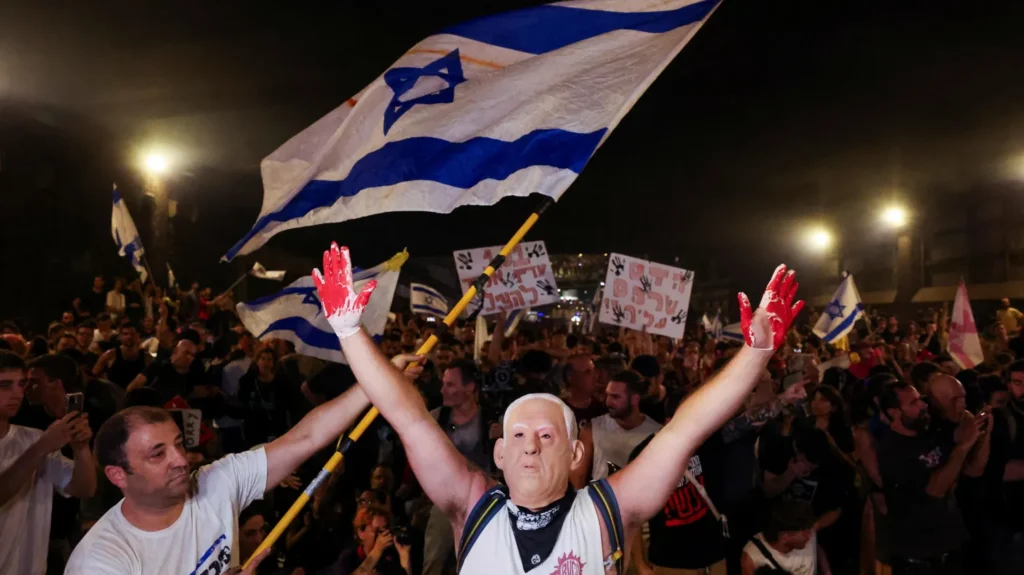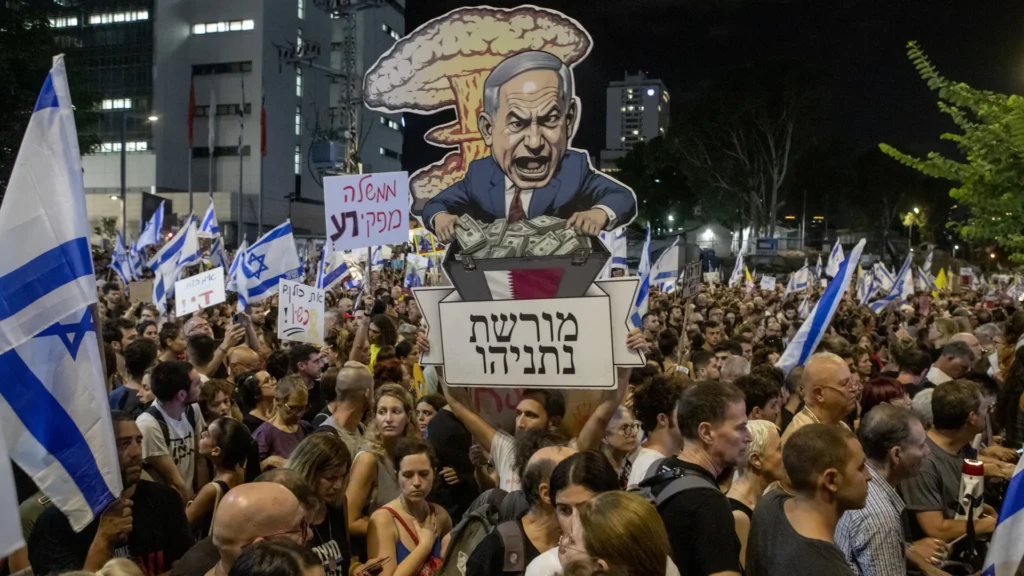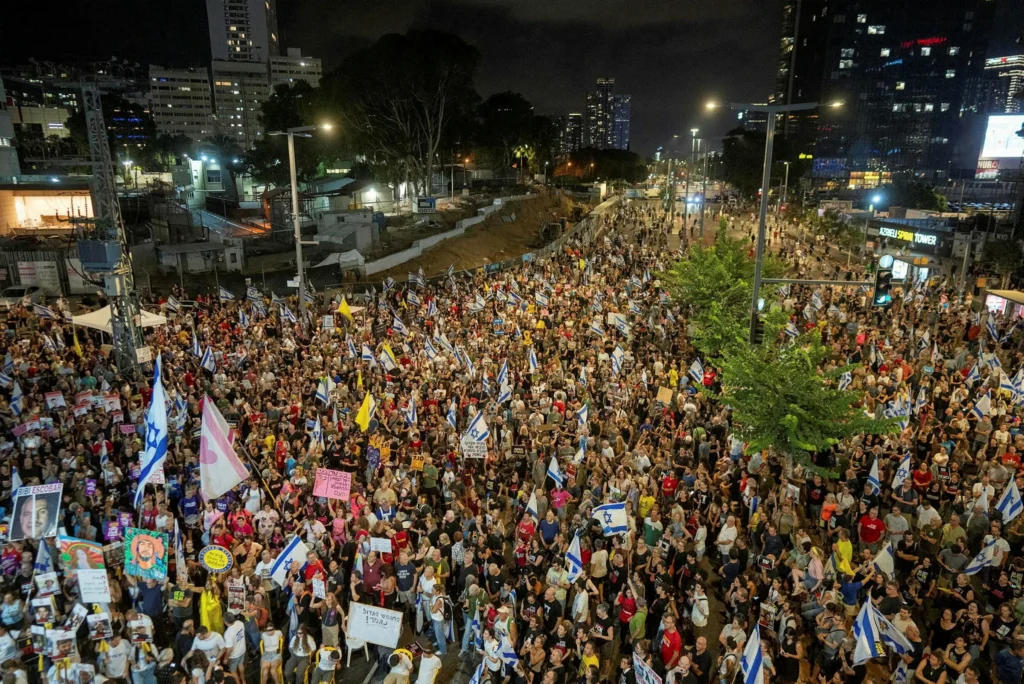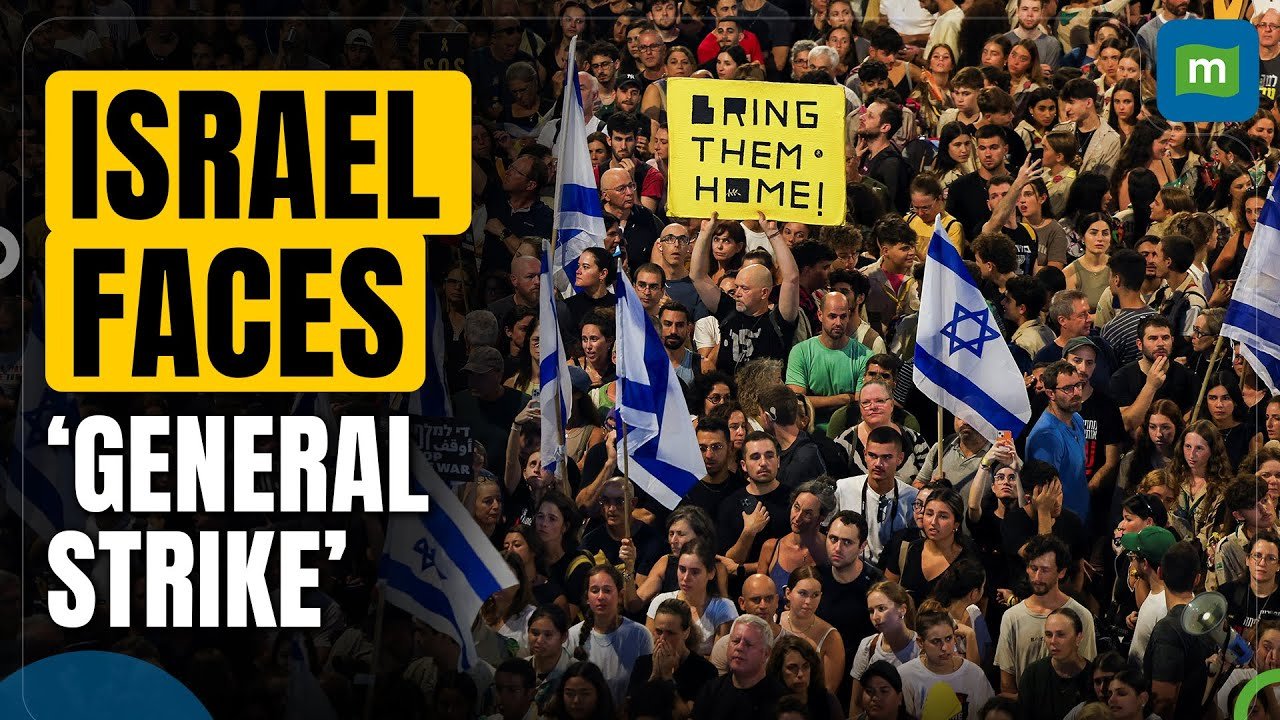TEL AVIV, Israel – A crucial nationwide strike is set to take place in Israel on Monday, as public anger grows over the government’s alleged failure to secure the release of hostages held by Hamas. The strike call comes amid a series of protests that began over the weekend after the discovery of the bodies of six hostages, sparking widespread outrage and renewed demands for action from Prime Minister Benjamin Netanyahu’s government.
Nation in turmoil over hostage crisis
The situation in Israel has been extremely volatile since Saturday, when the Israel Defense Forces (IDF) recovered the bodies of six hostages from an underground tunnel in the Rafah region of southern Gaza. The victims were identified as Carmel Gat, Eden Yerushalmi, Hersh Goldberg-Polin, Alexander Lobanov, Almog Sarusi and Master Sergeant Ori Danino. According to the IDF, the hostages were killed shortly before Israeli troops arrived.

The tragic news has triggered a wave of protests across the country. Thousands of people took to the streets in several cities, including Tel Aviv and Jerusalem, on Sunday to express their frustration and demand more decisive action from the government to secure the release of the remaining hostages. The protests were driven by a deep feeling among people that the government has not taken sufficient steps to negotiate the release of those held hostage by Hamas since the terror group’s brutal attack on Israel on October 7.
Histadrut calls general strike
The one-day general strike on Monday was called by the Histadrut, Israel’s largest labour union, led by Arnon Bar-David. The union, which represents a large portion of Israel’s workforce, has accused the government of inaction, with Bar-David saying, “The country is getting body bags instead of a deal.” The strike aims to pressure the government to act more decisively in negotiating the release of the remaining hostages and hold it accountable for its alleged mishandling of the situation.

The government’s response to the union’s call has been quick and scathing. Far-right Finance Minister Bezalel Smotrich criticized the Histadrut’s action, accusing the union of undermining national unity and “playing into the hands of Hamas.” Despite the strong response from the government, the union’s decision underscores the growing frustration and sense of urgency felt by many Israelis about the ongoing hostage crisis.
Mixed reactions to strike call
Although the call for a general strike has attracted considerable attention, it is uncertain how widely it will be observed. Several cities and municipalities have already announced that they will not participate in the strike, indicating that support may not be uniform across the country. However, the call for a strike serves as a powerful signal that public anger is reaching a boiling point, and there are strong demands for accountability and action from the government.
The lack of clarity on the extent of participation also reflects the complex and divided nature of Israeli society, where issues of national security, political allegiance and personal faith are often intertwined in complicated ways. Still, the call for a nationwide strike is a significant move by the Histadrut and a symbol of widespread discontent that is unlikely to abate soon.

Protests reflect deep-seated anger and frustration
Sunday’s protests, which were largely peaceful, saw huge crowds blockading a major highway in Tel Aviv, breaking through police lines and making their way through the city’s main arteries. Protesters were seen waving Israeli flags and chanting slogans, many of which directed anger directly at Prime Minister Netanyahu. Some protesters climbed onto buses and trash cans to get a better view of the rallies, while others gathered around a man wearing a Netanyahu mask and chanted, “Alive, alive, we want him alive.”
Protesters’ anger is fueled not only by the latest news of hostages being recovered but also by a widespread feeling that the government has not prioritized the safe return of hostages held by Hamas. Protesters carried placards that read, “You are the leader. You are responsible,” directly holding the leadership accountable for what they say is their failure to protect Israeli civilians.
This public outrage is overshadowing other critical issues, such as humanitarian efforts in Gaza, where a polio vaccination drive for 640,000 children began on Sunday under challenging conditions. The vaccination drive depends on a local pause in fighting between the Israeli army and Hamas fighters, with the first three-day ceasefire window starting on Sunday.
Uncertainty over number of remaining hostages
One of the main issues driving the protests and calls for strikes is the lack of clarity over how many hostages are left in Gaza. Since the Hamas attack on 7 October, which resulted in the kidnapping of 251 people and the killing of 1,200 others in the south
